Episode 19: Rich Tabor
Podcast: Play in new window | Download
Subscribe: RSS
Introducing Rich Tabor
Rich Tabor is a full-stack creative professional. Designer, developer, maker, and writer. He’s laid back but he’s also hard-hitting. Rich loves learning and bringing on growth through challenges.
Show Notes
Website | richtabor.com
Website | Themebeans.com
Twitter | @richard_tabor
Episode Transcript
Liam: This is Hallway Chats, where we talk with some of the unique people in and around WordPress.
Tara: Together, we meet and chat with folks you may not know about in our community.
Liam: With our guests, we’ll explore stories of living – and of making a living with WordPress.
Tara: And now the conversation begins. This is episode 19.
Tara: Welcome to Hallway Chats, I’m Tara Claeys.
Liam: And I’m Liam Dempsey. Today we have Rich Tabor on this show. Rich is a full-stack creative professional. Designer, developer, maker, and writer. He’s laid back but he’s also hard-hitting. Rich loves learning and bringing on growth through challenges.
Tara: Hi, Rich.
Rich: Hey, how’s it going?
Liam: Rich, it’s going great. Thanks for joining us today. Can you tell us a little more about yourself beyond the 25-30 words that we just heard?
Rich: Sure. My name is Rich Tabor and like I said, I’m a full-stack creative– I guess that means I pretty much wear a lot of hats. I love learning, teaching, writing, actually doing creative work and developing. I enjoy making things come to fruition and whether that’s personally or professionally, it’s all summed up into one for myself.
Tara: It sounds like you work alone or do you have an agency or employees or coworkers?
Rich: A little bit of both. I work on my own stuff. I’ve got my theme shop, ThemeBeans, where I make themes for creative professionals. I also work for Envato reviewing WordPress things on ThinkForest. I pick up clients here and there doing contract work for WordPress websites typically but that’s a little bit of, I guess, the trifecta of what I do.
Tara: Okay. Tell us a little bit about your background, where you come from and how you learned to do what you do?
Rich: Yes. I live in Northern Georgia, about an hour and a half north of Atlanta with my beautiful wife and two baby girls. I started getting into the WordPress space when I graduated college and I was studying marketing and learned design back in the old Photoshop days. Then I graduated, went into a marketing position at a local company and did only design work for them. The developers pretty soon were like, “Hey Rich, we can’t do all this. This is way out of scope, way too complicated. Way too much work.” I was like, “Okay, naturally I should learn the rules of the game.” I learned how you do a front-end design when I was there and that soon evolved into doing WordPress themes and then plugins and I just love learning so I just kept going.
Tara: What is your primary source of learning? Do you have a go-to book or a website that you use?
Rich: To be cliche, Google. I pretty much, when I’m developing or working on something new and I run into problems and google your way out of it.
Tara: And do you do some client work?
Rich: I do. I do all sorts of stuff locally, especially in a small business scene around here. I just picked up a thing to do the local school system’s websites around here, which is pretty neat because school systems have a lot of needs and their websites are not very functional or attractive, or no one really wants to pick up that type of burden. I really think serving my local community in that fashion would be pretty neat.
Liam: Yeah, the local community and being able to support it at that level, especially through the local schools is a great way to contribute to the quality of life around you. Tell me a little bit about that, the school system. Did you get a contract for the entire school district? Are you building teacher site? What specifically if you can share that with us?
Rich: Yeah, it’s for the whole school system in this region up here. It’s five or six schools to start off and then we’ll see where it goes from there. In that, there’s a lot of things like, they want to set up teacher blogs for each of the teachers. And just kind of building upon that sort of technological side of what they want to do in the school rooms, which I think is really exciting. There’s a lot of movement on that front.
Tara: You’re a full-stack and it sounds like you do everything sort of soup to nuts unicorn style. How do you find that? It sounds like a big project. Will you work on that all alone or do you have people that you contract to or partner with or something like that?
Rich: For bigger projects like this, I definitely reach out to a few people I know and kind of keep on my back burners just in case. With something this big, I do like having other eyes on it because it can easily get way overblown. Especially when you’re– I’m communicating with a bunch of people who have different ideas for what the website should be and how it should work. Part of the whole project is making them kind of come together in that. And they’re presenting an idea in a website and the functionalities that they really need in that core to what they want to do.
Liam: I agree with that point around the bigger projects and having additional people. It’s not that you don’t know how to do it or that you can’t come up with the conditionals or what’s the idea functionality, but it’s more on one person than I know how I would want to do it, but making this for an entire school system, “How do we go about doing that?” And also just the– what’s the wider experience? If I make it this way, “Oh right. If I then try to incorporate this, that creates technical challenges because of the way this system works.” Yeah, that can be tough though, to have that cadre of people around you when you are a freelancer. Would you speak how you go about building your professional network of suppliers, vendors, whether it’s developers, designers, copywriters that you know you can turn to when, “Oh, I got the big deal, I got a big project.” How did you go about building that, how do you maintain that?
Rich: Yeah, that’s a great question. A lot of the people that I’ve grown to network with and gotten to become more or less friends with, I’ve developed these relationships through online social media, Twitter usually. Even back in the day, answering questions online with people and people asking me questions. Then that sparks like a, “Hey, I’ve got this idea, do you want to work on this together?” Or I’ve got this client projects and then I’ll do something for them.” And then in the future, I might ask them to do something. Then at local conferences, even regional conferences, WordCamps. It’s great advice to just really put faces to names of people you may have never known or probably would never have met otherwise. Really, that’s how I do it.
Tara: Yeah, that’s a good thing about the WordPress community is it doesn’t have to necessarily be local but there certainly are a lot of resources locally, opportunities to meet people face to face. In terms of collaborating, it’s really easy to do that when you’re not face to face as well, so it sounds like you’ve got a good mixture there of the two. The variety of work that you do, what is your favorite thing? Your theme reviews, theme creating, client work?
Rich: It would definitely be creating themes. It’s kind of my bread and butter, that’s where I learned everything, basically. I like trial by fire so I put out a theme and five or six years ago it was terrible when I look back on it, but all those experiences and every time I released a new theme, you learn so much more. And today with WordPress standards evolving so fast and rapidly, and theme standards and plugin standards, it keeps you on your toes, it keeps you going and it’s so much fun. I love just taking an idea and doing the research and really making something great and putting it out there for others. That’s so much fun.
Tara: That takes a lot of confidence, I think. I’ve attended some talks about creating themes to be put into the repo and all that it takes to have them pass semester, and it seems pretty overwhelming. I’m sure once you’ve done a couple, you probably know where you get caught up or don’t get caught up, but have you had any experience with failing at that? Or when you say you learn from doing it, is that a painful process to learn? Is it learning the hard way when you’re putting it out there for everyone to see and compliment or criticize either way?
Rich: Yes, that’s the joy of open source. It’s good because you’re getting so many eyes to look at your stuff. But, I mean, if I was just sitting in my room teaching myself this stuff, I would never learn 80%-90% of what I learned because of the community because I’m getting eyes on it. And that’s helping me develop myself in a sense. And you said, failure is– putting the theme on the WordPress repository, it’s my first official theme. I’ve had a bunch of themes that are commercial only, and I submitted it earlier this summer. My goal for this year was to get one in there. I submitted it earlier this summer and it was torn to shreds. [laughter] It’s good though because I’ve taken that and I resubmitted it a couple months later with all the fixes. I was like, “These are all valid concerns and requests.” Then I just took all those concerns, requests, and bug fixes, and applied them to all of my things, which I would have otherwise not ever known. That’s helping me grow … it’s still in the queue waiting.
Tara: Yeah. Congratulations, that’s really interesting. I like that approach and it sounds to me like a great way to learn but it also does sound like to have a thick skin to do that. What would you say is your biggest challenge, Rich?
Rich: See, I think of work and life balance as– I don’t know, I kind of don’t really separate it. Work and life to me is the same thing because I’m passionate about work and I’m passionate about life, of course. For me, my biggest challenge is balancing the parent act with my life and with work because I’m a new parent, have a 19-month old, maybe 20-month old and a five or six-month old. Then numbers get blurry at this stage. [laughs] I’m learning this new style of living, really, of being wherever I’m being and it’s hard, it is. But like I said with the themes, it’s also challenging me to grow and the personal life, big important part of everything, which is so cool.
Tara: Yeah, and you sound like you’re passionate about what you do and working on themes and code, I know, can be absorbing and you kind of lose track of time. How do you balance that both in your time but also in your mind or, I guess, your mental health, your family health? How do you balance that do you beat yourself up when you’ve gone three hours past when you said you were going to be there working on code, if that happens to you? I know that might be familiar. How do you manage that kind of thing?
Rich: I’ve really learned to set expectations for myself, valid expectations. Things that I know I can accomplish in X amount of time. And there are the hours where something happens and you’re in a room for three more hours than you intended. But I don’t make that norm and I really, really try not to do that. Because I know even relationship-wise with my wife and I, setting those expectations are very important and even working from home, that magnifies that because I’m one room away but there’s a tornado going on downstairs because there are crying babies there. For me, it’s personally like, “Okay, what can I get done? How much time do I have to do this? I think I can do that. Okay, let’s do it.” And being hyperfocused on that because otherwise, it could lean one way or the other, I’ll get nothing done or I’ll just be away and I can’t have that either.
Tara: Yeah, focus and productivity. Those are two challenges, I think, that we all face when we’re dealing with having a family in the next room or being engrossed in passion about what we do. Related to this idea of balance, what would you say is your idea of success? We ask this a lot of people on this show, we like to hear different opinions about it. So in your personal or your business life, what would you say is your definition of success?
Rich: That is awesome, I love that question. Success to me is really, really loving what you do and just doing what you love. I guess it’s kind of the same thing but not at the same time. I just am passionate about my work, I’m passionate about my life, I’m passionate about being a dad. To me, that is success. I’m doing it and it’s fun, it’s great, it’s rewarding, it’s just success.
Liam: That’s a great definition. It’s so simple and profound in many ways. Then within that definition then of loving what you do and doing what you love kind of circle that back to then, how do you push the success of being a dad? So the time commitment, the– in a good way, right? You want to be with your children, you want to be with your wife. Versus success as a business owner, as a developer, as a designer, as a creator, and to some extent, the two can build on each other. The experiences of fatherhood and husbandry can lend themselves to success in creative shop and vice versa. But at some point, they also compete and I want to hear your thoughts about that?
Rich: Yeah, that’s great. From my two years of experience or just about two years of experience, for me, it’s spending the quality time with– in relation to success with being a dad is the quality time with the babies, it’s being there with mom and being with the whole family and just being, I guess. And in this stage we’re also starting to discipline a little bit, that’s part of life right now. For me to be a successful parent, I think that’s part of the deal. That’s it. That’s part of being successful for me is being able to learn with my wife on how to properly discipline and how to grow our children up, which is so exciting when you think about it.
Liam: It’s fantastic, it’s wonderful. It’s absolutely wonderful. Within that, then your definition in the challenges of balance, do you have systems that you’ve implemented or worked up that help you keep that balance? Whether it’s a to-do list, or timers, or a daily routine, so that when it all does hit the fan, whether the family, the girls are sick, or the client project that’s kicking off is really getting fast and furious in deadline, what kind of system do you have in place?
Rich: Yeah, I’m all about systems. When you have babies and multiple projects and different positions and you love it all, it has to be systemized. What I do is I have a Trello List that I use, I use Trello for everything, my ‘my day’ list and I just pull whatever I’m going to work on. And like I said earlier, the expectations and set reasonable objectives for what I’m getting done. I do a 15-minute ‘drive’ home from my office. I go to the bedroom and kind of just take a breather and get out of the work mode and into the home mode. I found that to be awesome because, on the days that I would go and hang out in coffee shops and such, I would come home and be energized and ready to go because I’ve had the drive home, instead of–
Liam: Right.
Tara: Or maybe because you drank coffee all day, that might help too.
Rich: That too. [laughter] But really, though, having just the few minutes to buffer the two, the work and the home life. That’s been awesome, it really has. And then also with expectations with my wife, whether you know a week ahead of time, like, “Hey baby, we’ve got this project coming up and it’s due on Friday afternoon and it’s probably going to go late or it could go late.” That way she knows to plan that and that’s how we take care of that.
Liam: Communication is key.
Rich: Oh yeah.
Liam: Let me ask you about your drive because I’ve never heard that practice before and I’m really interested by it. I would be fearful that I would go and I would just pull out my phone and surf Twitter and do that. What are you doing on your drive home?
Tara: You can’t drive and tweet. [laughter]
Rich: Right, you can’t drive and tweet. I usually just stay there.
Liam: What are you doing on your drive?
Rich: I just lay there always thinking about work, right after work, you’re not going to stop, you can’t just, “Oh, here we go.” But it is a point where I’m like, “What did I accomplish today? Did I hit all my expectations and my objectives for the day?” Okay, “Sweet, I did.” Or, “You know what? I didn’t get that one thing done. Okay, I’ll do that first thing in the morning.” That way when I’m downstairs playing with the kids, I’m not thinking of that, I’m not worrying about things, I’ve already thought about, go through a little bit and kind of gone from the developer mode or designer mode into the family mode. And no phones, like you said. If you’re just on Twitter, you’re just going to the numb state, you’re not really– you’re just absorbing, I guess.
Tara: That’s a great practice to share.
Liam: Yeah, I love it. I’m not going to let it go yet. I’ve got more questions about it. [laughter] You’re going through this mental review and I appreciate the value of that as an unwinding process. Are you bringing a notepad? You’ve just said, “Oh, I didn’t get to this today, I’ll do that tomorrow.” How are you indicating that? How are you letting your brain off the hook for remembering that? Are you quickly updating Trello on your phone? Are you writing something down? How are you respecting your drive but also a needle in your brain so that when you go downstairs and maybe you leave your phone in the bedroom and you’re committed to family time, you’re not freaking out like, “I’ve got to write that down. I’ve got to remember.” How you do that?
Rich: Right. If it’s something bigger, definitely on Trello I would just– I have a left-right system and then the ‘done’ list so I just drag stuff over and just kind of like, “Okay.” But it’s typically not anything that’s not on Trello. Like, if it’s not on Trello already then it’s something big. I’ve got to know what’s happening. Because, like I said, I’m a huge planner, I plan everything. Everything is pretty much buttoned up by the end of that period there, and then I can go downstairs and just chill. Well, when you have babies, it’s not really chilling, it’s a little whirlwind but it is nice.
Tara: It sounds like a good combination of meditation and also list making, or productivity. Liam’s question makes me think of one of my personal heroes, David Allen, who wrote a book called Getting Things Done and he talks about always having paper or a notebook with you so that when those thoughts come in your head, you can write them down so you don’t lose them. I know Liam is also a disciple of David Allen so I know where this question may have been coming from.
Liam: Absolutely, yes, you know me well, Tara. [laughs]
Tara: Yes, it’s easy to get the productivity bug when you work for yourself because it’s really important to have your systems in place or you can just kind of twitter away the day and get lost. There are lots of great tools and shiny objects and we’ve probably tried out, all of us, more than we need to but finding the one that works for you, whether it’s Trello or something else, it’s a gold mine once you find that. It really helps you be productive and ‘successful’, whatever that might mean. When you think to the future, Rich, when you think about where your business is right now and having two small children who I imagine you need to support financially to some degree, how do you manage that process in terms of thinking about your goals for your business, merging them with the goals for your family but primarily talking now about business when you look ahead, say, five years or further down the road? Do you set goals for yourself in that type of way?
Rich: Yeah, I do. It’s interesting, I guess. A lot of my goals are pending challenges, I guess, things that I really want to do. I’m like, “Okay, let’s figure out how to do that.” Like, I’m working on some course material, I’m going to do a course on mastering the WordPress Customizer because that’s kind of my bread and butter. I love making things easy for users and making things intuitive. That’s one of my goals for next year is to figure out if that’s a thing, if I’m going to do that, if it’s a viable product. And then for ThemeBeans, right now I’m just growing the customer base and it’s going awesome. The theme market, in general, is rough selling right now but I broke out from the crowd a little bit earlier which has helped me big time.
Tara: How did you break out from the crowd?
Rich: I differentiated myself through my design work and I also separated from selling on mass markets like ThemeForest and Creative Market as much, so my newer material is just solely on my website and I’ve been marketing a whole lot, studying. I studied marketing in school so I had a few tools in my bag before things went down market-wise. I have lots of emails, lots of people, lots of really loyal customers which have helped me through this rough sailing right now. I think in a year or two the market is going to be completely different again, which is cool because I think it’s moving towards a quality market. People are more educated about what it takes to have a quality theme versus a $19 theme on ThemeForest. There’s a huge difference likely.
Tara: Yeah. How does your work at ThemeBeans crossover with what you do with Envato?
Rich: I tried my best to keep it very separate but the crossovers that do happen are good, they’re educational things that I’ve learned, new ways of doing things, or better ways, or new standards, or upcoming standards. I’ve helped the folks at ThemeForest write some WordPress requirements for reviewing, so that’s been cool, that I’ve been able to be a part of that. It’s like we’re asking like why are we checking for this and is it necessary. Okay, how do we communicate that to the authors and how do we educate them on improving things. I think that’s really the only way– I really try to keep them separate mindset-wise. I don’t like to cross paths in that sense, except for the education.
Tara: This is like the elephant in the room of WordPress these days but I’ll ask you and you don’t have to talk about it for more than like a few seconds but as a theme builder– well, actually there’s two elephants in the room. I’ll ask you about how the growth of page builders is affecting your themes and also looking ahead to Gutenberg and how that will affect what you have to do going forward and also retroactively?
Rich: Those are great questions. Page builders, they have some room– they’re definitely affecting the theme market, in a good way though. I think they’re empowering users who would have had a horrible time trying to do the same stuff with shortcodes and on their own, or they would have paid someone lots of dollars to do the same stuff with probably lower quality. That’s totally okay, I’ve integrated Beaver Builder into a couple of my themes. It’s the one I tested a bunch and that’s the one I found to be the top of the line, but by integrating them it’s not in the same sense as their default modules. I set the parameters, I set rules so when they add specific modules to different locations, they already look great. It’s not like a full-on do everything you want to do, it’s more of do it within these constraints and it’s going to look awesome. And Gutenberg, I’m stoked about Gutenberg, I think it’s going to be great. It’s the revolution of shortcodes but in today’s time. I think it will be just as advantageous as shortcodes were before they weren’t there and now they were. I think that it leaves opportunity for authors and developers to add some really cool stuff to their things. That’s exciting to me. It’s like a whole another doorway that’s opening up.
Tara: I like your positive answers.
Liam: You’re a most positive guy.
Rich: It’s okay. Thanks. I think they’re just opportunities.
Tara: Sure.
Liam: Rich, let me change gears on you when I ask you a more or less signature question for us. What is the single most valuable piece of advice, either personal, professional or maybe a mix of both that you’ve ever received and incorporated into your life?
Rich: Yes, that one is good. This one for me, it’s all about being real, it’s being a human, a real person. If the internet is so easy to sit behind a screen and to never be there, to never be with your customers, never feel their pain points, to never be there to help them. It’s so easy to just be an avatar. For me, it’s about being human, being real and connecting with people, whether that’s social media, whether that’s a person at home, whether that’s at the store, or whether that’s in my support channels. It’s what kind of separates me from a lot of the competition out there in the support theme world, because I want my customers to know that when they buy a theme from me, they’re buying a little bit of me. I’m there, I’m in the theme, I’ve built it, I’m partial to helping them succeed with their website and I want them to know that. That’s the biggest piece of advice that I’ve ever seen.
Liam: How do you go about being human and real in support tickets or as part of the client project? What does that mean?
Rich: It means being empathetic, being honest and transparent. Just being who you would be if you were sitting across the table, helping them with their problems It’s taking that mentality and approaching support in a matter of, “I want to help you and I want you to learn how to help yourself too. Then we’re all going to grow, your website will be amazing. It’s already beautiful and now let’s fix these little issues we’re having and let’s kick this off.” And then making sure that they know that I’m there whenever they need me and making it easy to reach out to me.
Tara: That’s again a really positive answer. [laughter] I like that. And I’m hopeful that’s how it is most times. I would imagine that support sometimes is a rough road to travel but I think it’s kind of like anything else if you approach it with that positive pleasantness, then people have no choice but to respond to you that way. But maybe their initial reach out to you is maybe more panicked or freaking out. [laughter] Yeah. It’s important to have that positive attitude and mentality when you’re doing support, I think. Patience and all those things which sounds like you have in ample quantities, Rich.
Rich: Oh, thanks.
Liam: Your emphasis on being transparent and reliable, I would imagine that most of us would agree, if not all of us, that the world can use a lot more honesty and transparency at this point in time. Unless you’re taking that approach to your business and to your life, and to the way that you’re interacting with and loving and supporting and raising your family is promising indeed. Thank you for sharing that with us.
Tara: That’s impressive. Yeah. Our time is coming to an end, Rich, and we really have enjoyed talking to you and meeting you. Can you tell everyone else who will be listening where they can find you?
Rich: Yeah. I occasionally write on Richtabor.com. I sell my themes and you can see all my work at Themebeans.com. I’m on Twitter, @richard_tabor and I’m all over all three of those so you’ll catch me.
Tara: Great.
Liam: Rich, thanks for joining us this afternoon, it’s been an absolute pleasure chatting with you, getting to know you a little bit and hearing about you. Thanks for your time and your conversation.
Rich: Thanks guys, it’s been so awesome.
Tara: Thank you, thanks for joining us.
Liam: Bye.
Liam: Thanks for the listening to the show. We sure hope you enjoyed it much as we did.
Tara: If you like what we’re doing here – meeting new people in our WordPress community – we invite you to tell others about it. We’re on iTunes and at hallwaychats-staging.ulpgsyz6-liquidwebsites.com.
Liam: Better yet, ask your WordPress friends and colleagues to join us on the show. Encourage them to complete the “Be on the show” form on our site, to tell us about themselves.
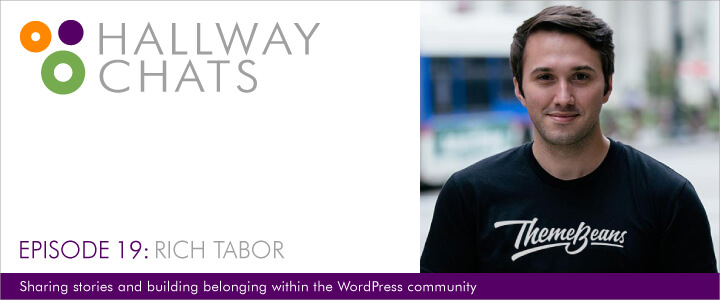
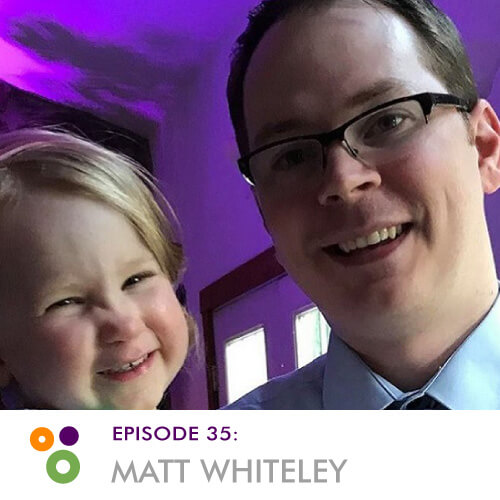
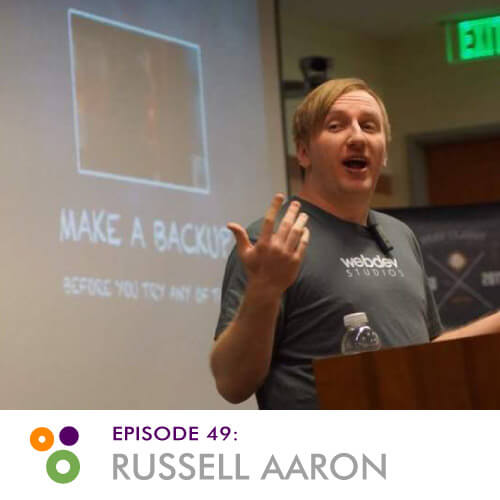
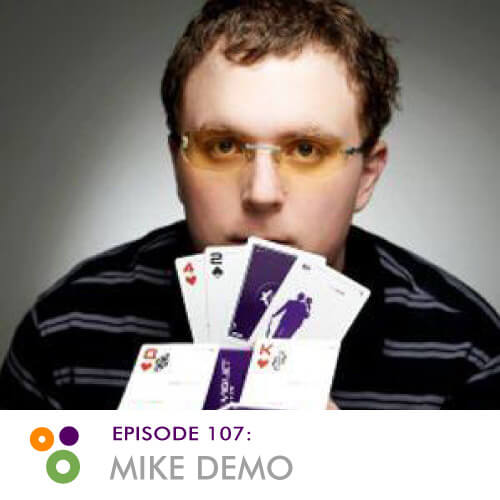
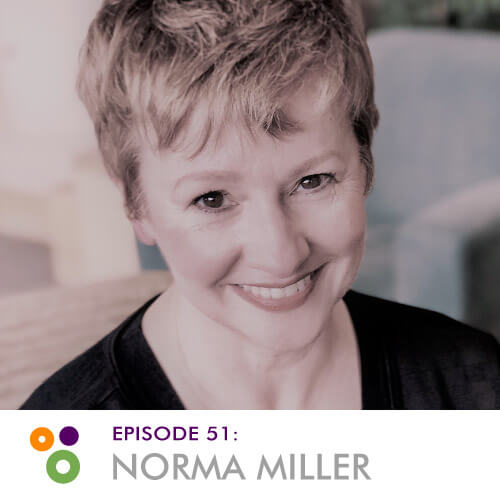
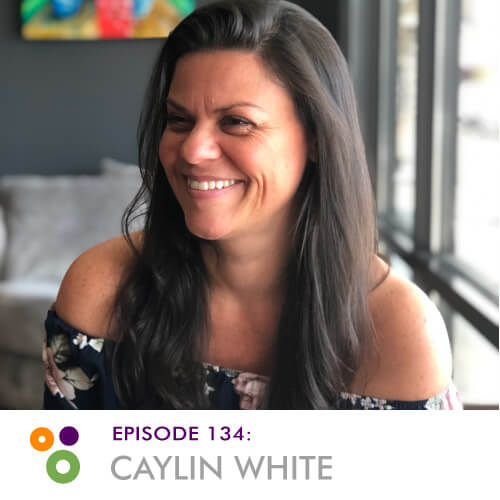
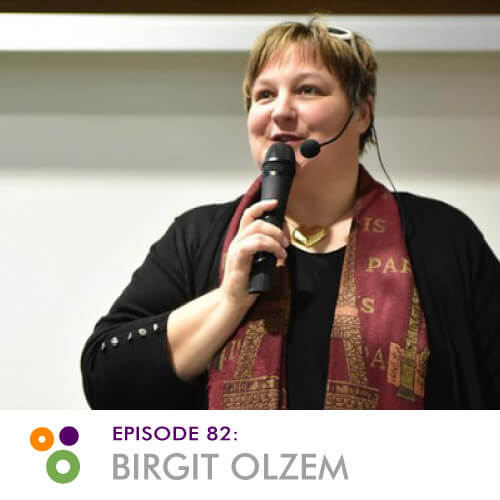
3 Comments